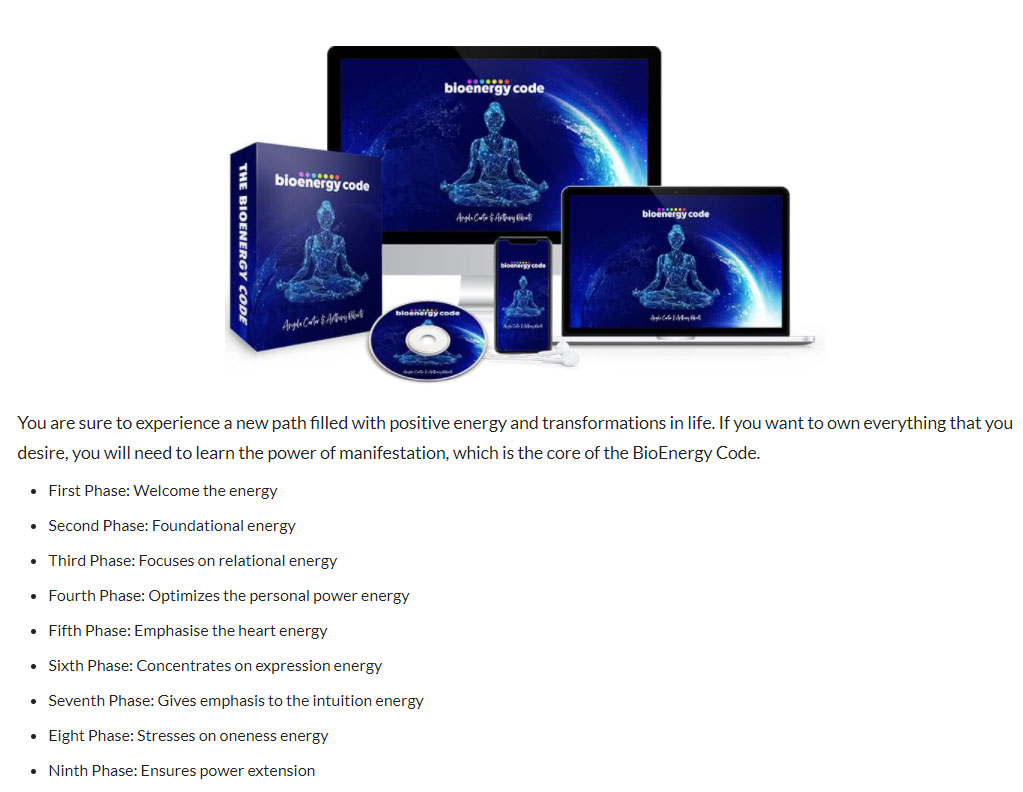The benefits of meditation
We've all heard the saying "you should meditate, meditation is great". But what about really? Is it only for people who have been practicing it for 10 years, or are there serious scientific studies that might be of interest to us?
In this impressive article, I have summarized several scientific discoveries about the beneficial effects of meditation. More than 100 studies have been analyzed (some of which are themselves the analysis of hundreds of other studies), the results of which have been listed in 76 benefits (divided into 46 subheadings). You will be surprised when you read some of them.
You will surely notice that in many blogs and forums, when people answer the question "why should I meditate" or "what are the beneficial effects of meditation", only a few health benefits are mentioned, as well as spiritual benefits, but this remains largely incomplete; or there is a lack of scientific evidence to support their claims. According to Wikipedia there are more than 6,000 scientific studies about the beneficial effects of meditation, yet I have not found any blog that compiles the hundreds of studies into one organized article, so I decided to fill this gap.
These studies were based on different types of meditation, and I have included details where relevant. Some effects, such as an increase in compassion or the ability to socialize, are more evident with the practice of specific meditation techniques (such as "loving-kindness" which is a type of Buddhist meditation). However, depending on my approach and my personal practice, whatever type of meditation you practice, you will derive most of the beneficial effects, to one degree or another. There is also evidence that meditation practice will be all the more beneficial if you find the technique that suits you best.
You can read our article on the different types of meditation.
Some studies claim that meditating even just 20 minutes a day, for a few weeks, would be enough to feel the beneficial effects.
I am constantly updating this page, so if you find any interesting studies that are not already mentioned here, please leave me a message as a comment so that I can include it.
As you can see at the bottom of the page, my goal is to bring tools to as many people as possible to help them feel happy and fulfilled. This is why I wrote this article and I would be grateful if you could share it on social networks so that as many people as possible can read it.

1. Brain and Moods
Meditation practice reduces depression
In a study of about 400 students (aged 13 to 20) in five secondary schools in Belgium, Professor Filip Raes concluded that "students who participate in a meditation program in the classroom show, up to six months later, diminished signs of depression, anxiety and stress. In addition, these students were less likely to develop depressive-type symptoms. Another study from the University of California based on patients with a history of depression concluded that meditation reduces the rumination of ideas and dysfunctional beliefs. Yet another concludes that meditation may be effective in the treatment of depression at a level comparable to treatment with antidepressant medication.
Meditation helps in the treatment of depression in mothers-to-be.
High-risk pregnant women who participated in a 10-week yoga and meditation program experienced a significant reduction in their depressive symptoms, according to a University of Michigan Health System feasibility pilot study. Expectant mothers also showed more intense attachment to their babies in utero. These findings were published in Complementary Therapies in Clinical Practice.
The practice of meditation helps to regulate mood and anxiety disorders.
This is also the conclusion of more than 20 randomized, double-blind studies extracted from databases such as PubMed, PsycInfo, and Cochrane involving meditation, meditative prayer, yoga, and relaxation techniques. Another study concluded that meditation may be effective in treating anxiety disorders at a level similar to that of antidepressant treatment.
Meditation reduces stress and anxiety in general.
A study from the University of Wisconsin-Madison indicates that the practice of Open Monitoring meditation (such as Vipassana) reduces the density of gray matter in areas of the brain that are related to anxiety and stress. Meditators were more likely to "respond at all times to a stream of stimuli to which they were exposed and were less likely to 'get stuck' on one of the stimuli. Open Monitoring" type meditation involves monitoring the content of the experience at each moment, primarily to recognize the nature of cognitive and emotional patterns. There are also other studies for which I am only giving you the link, in order to avoid repeating myself.
Meditation helps reduce the symptoms of panic disorder.
In research published in the American Journal of Psychiatry, 22 patients with a diagnosis of anxiety or panic disorder participated in a three-month meditation and relaxation program. The result showed that, for 20 of these patients, the effects of panic and anxiety were substantially reduced and that these changes persisted at follow-up.
Meditation increases the concentration of grey matter in the brain.
A group of neuro-scientists from Harvard conducted an eight-week experiment with 16 people undergoing a meditation course, which included the use of guided meditation and the integration of meditation into daily activities. The results were relayed by Sara Lazar, PhD. In the end, the MRI scans performed show that the concentration of grey matter increases in areas of the brain that are related to learning and memory, emotion regulation, sense of self and perspective. Other studies also show increased volumes of grey matter in the frontal and hippocampal regions of the brain in people who practice long-term mediation.
Meditation dramatically increases psychomotor alertness and reduces the need for sleep.
In a study conducted by the University of Kentucky, participants were tested in four different "states": Control (C), Nap (N), Meditation (M) and Sleep Deprivation plus Meditation. Non-meditators, meditation novices and meditation experts participated. The results suggest that :
Meditation provides, at a minimum, short-term performance improvement, even for those who are new to the practice. In long-term meditators, multiple hours of meditation are associated with a significant decrease in total sleep time when compared with controls of the same age and sex who do not meditate. The idea that meditation can replace sleep or compensate for sleep deprivation is still being further investigated.
Long-term meditation increases the brain's ability to generate gamma waves.
In a study conducted by neuroscientist Richard Davidson of the University of Wisconsin among Tibetan Buddhist monks, it was found that the novice subjects in terms of meditation "showed a very slight increase in gamma activity but most monks showed an extremely large increase, to the point that it has never been described in the neuroscientific literature.
Meditation helps reduce alcohol and substance abuse.
Three studies conducted among the prison population on the practice of Vipassana meditation suggest that it would help reduce alcohol and substance abuse.

2. Spirit and Performance
Meditation improves your attention span and your ability to work under stress
A study conducted by Katherine MacLean of the University of California suggests that during and after following a meditation program, subjects showed a greater ability to stay focused, especially when performing boring and repetitive tasks.
Another study showed that even with only 20 minutes of meditation per day, students were able to improve their performance on cognitive tests, and in some cases performed 10 times better than the group that did not meditate. They also performed better on information processing tasks that were designed to be stressful due to a deadline.
In fact, there is evidence that meditators have a thicker prefrontal and right anterior insular cortex, and that the effects of meditation may counteract age-related cognitive loss.
Meditation improves information processing and decision making
Eileen Luders, an assistant professor at the UCLA Laboratory of Neuro Imaging, and her colleagues have discovered that people who have been meditating for a long time have a greater degree of gyrification ("folding" of the cerebral cortex), which would allow the brain to process information more quickly than people who do not meditate. Scientists suspect that gyrification is responsible for making the brain better at processing information, making decisions, creating memories and increasing attention.
Meditation provides mental strength and improves resilience and emotional intelligence
Psychotherapist Dr. Ron Alexander PhD writes in his book Wise Mind, Open Mind that the process of mind control through meditation increases mental strength, resilience and emotional intelligence.
Meditation makes you more resistant to pain
A research group at the University of Montreal exposed 13 Zen masters and 13 comparable non-meditation practitioners to an equivalent degree of pain while measuring their brain activity using functional magnetic resonance imaging (fMRI). They found that people who practice Zen meditation (called zazen) experience a lower level of pain. In fact, they experience a lower level of pain than the functional imaging data would indicate. In conclusion, although their brains receive the same painful input, in their minds the perception of pain is less important.
Meditation soothes pain better than morphine
In a study conducted by the Wake Forest Baptist Medical Centre, 15 healthy volunteers, who had never practiced meditation before, took four 20-minute classes to learn how to meditate and focus on their breathing. The brain activity of the study participants was examined before and after the meditation classes using ASL MRI imaging as they were subjected to a painful burn stimulus.
The lead author of the study, Dr. Fadel Zeidan, explains that
"This study is the first to show that just over an hour of meditation training can drastically reduce both the feeling of pain and pain-related brain activation (...) We found a significant effect - a reduction of about 40 percent in the intensity of pain and a 57 percent reduction in the feeling of pain. Meditation provides a greater reduction in pain than morphine and other pain medications, which only reduce pain by about 25 per cent."
Meditation helps to manage ADHD (Attention Deficit and Hyperactivity Disorder)
In a study of 50 adult patients with ADHD, the mindfulness-based cognitive therapy (MBCT) group showed reduced hyperactivity, decreased impulsivity, and increased ability to act with awareness, contributing to an improvement in the symptomatology of inattention.
Meditation improves the ability to stay focused despite distractions
A study from Emory University in Atlanta, Georgia, showed that participants with the most meditation experience had increased connectivity in attention-controlling brain connections. These neural connections may be involved in the development of cognitive abilities such as maintaining attention and detachment from distraction. Moreover, the beneficial effects of meditation practice are also observed in a normal state of consciousness during the day, which speaks in favor of a transfer of cognitive abilities "off the cushion" in daily life. The type of meditation examined focused on breathing.
Meditation improves learning, memory and self-knowledge
The long-term practice of meditation increases the density of grey matter in areas of the brain related to learning, memory, self-knowledge, compassion and introspection.
Meditation improves rapid recollection
According to Catherine Kerr of the Martinos Center for Biomedical Imaging and the Osher Research Center, "Meditation has been shown to improve many mental abilities, including rapid recall.
Meditation improves mood and psychological well-being
Researchers at the University of Nottingham Trent, England, have found that when individuals with stress-related problems and low moods participate in a meditation program, it improves their psychological well-being.
Meditation helps to avoid falling too often into the trap of "multitasking"
Multitasking is not only a dangerous productivity myth, it is also a source of stress. The "speed changes" between activities are costly to the brain, and induce a feeling of distraction and dissatisfaction with the work to be done.
In research conducted by the University of Washington and the University of Arizona, human resources staff participated in an eight-week program of meditation or body relaxation techniques and were subjected to a stressful multitasking test both before and after participating in the program. The meditation group showed lower stress levels and better task memory, changing tasks less often and staying focused on a task for longer periods of time.
Meditation helps to make better use of the brain's resources.
When two targets to focus on come in succession, one after the other, a second apart, the brain usually does not see the second one. This is called "attention blinking".
In an experiment conducted by the University of California, a stream of letters in random succession was presented on a computer screen. In the middle of each session, one or two white screens appeared. Participants were then immediately questioned at the end of the stream and asked to reproduce the letters they had seen. They were also asked whether they saw a white screen or not. Subjects who had practiced three months of intensive Vipassana meditation showed better control over the distribution of attention and perceptual resources. They showed less use of brain resources with each letter, resulting in a reduction in "attention blinking.
Meditation improves visuospatial perception and working memory.
Research has shown that even after only four sessions of meditation training, participants showed improvement in visuospatial perception, working memory and executive functions.
Meditation helps to cope with stressful events
A study by the All India Institute of Medical Sciences of 32 adults who had never practiced meditation before showed that if they started meditating before a stressful event, the negative effects of stress were lessened.
Meditation increases the awareness of one's unconscious self
A study conducted by the University of Sussex in England has shown that people who practice meditation experience a greater delay between unconscious impulses and their actions, they are also less sensitive to hypnosis.
Meditation fosters creativity
Research from the University of Leiden (Holland) shows that the practice of "open monitoring" meditation (non-reactive monitoring of the content of the experience at any given moment) has a positive effect on creativity and divergent thinking. Participants who have followed this program have shown better performance in tasks where they were asked to provide ideas in a creative way.

3. Body and Health
Meditation reduces the risk of heart disease and stroke
Heart disease is the leading cause of death in the world. In a study published in late 2012, a group of more than 200 high-risk individuals were able to choose to either take a health education course, which promoted a healthier diet and exercise, or take a course in transcendental meditation. Researchers followed the participants over the next 5 years and were able to show that those who chose meditation reduced their overall risk of heart attack, stroke or even death by 48%. They found that meditation "significantly reduced the risk of mortality, myocardial infarction and stroke in patients known to have coronary heart disease. These changes are associated with lower blood pressure and reduced psychosocial stressors. There are also other studies that have reached the same conclusions about similar health problems.
Meditation affects the genes that control stress and immunity
A study from Harvard Medical School showed that by practicing yoga and meditation, the production, use and elasticity of mitochondrial energy was increased. This increase improves the immune system's response and resilience to stress.
Meditation lowers blood pressure
A clinical study has shown that the practice of Zen meditation (called zazen) reduces stress and high blood pressure.
Another experiment, this time based on another technique called "relaxation response" had similar results, 2/3 of the patients known to have high blood pressure showed a decrease in their blood pressure after three months of meditation practice, and therefore less need for drug treatment. This is due to the production of nitric oxide which dilates the blood vessels.
Meditation reduces inflammatory pathologies
A study conducted in France and Spain by the UW-Madison Waisman Center reveals that the practice of meditation produces a series of molecular and genetic effects in participants. More specifically, there is a reduction in the expression of pro-inflammatory genes, which is correlated with a faster physical recovery from stressful situations.
Meditation reduces inflammation at the cellular level
In the three studies cited below, the group that participated in a meditation program showed better results in preventing inflammation at the cellular level than the control group.
Meditation helps prevent asthma, rheumatoid arthritis and inflammatory colitis
In a study conducted by neuro-scientists at the University of Wisconsin-Madison, two groups of individuals were exposed to different means of stress control. One group received a meditation program while the other received nutrition education, exercise and music therapy. The study concluded that meditation techniques were more effective in reducing inflammatory symptoms than other wellness activities.
Meditation and meditative prayer helps to treat premenstrual syndrome and menopausal symptoms
These are the findings of 20 randomized, double-blind studies extracted from the PubMed, PsycInfo, and Cochrane databases, involving techniques of meditation, meditative prayer, yoga, and relaxation response.
Meditation reduces the risk of Alzheimer's disease and premature death
The results of a recent study published online in the journal Brain, Behavior and Immunity, states that just 30 minutes of meditation per day not only reduces feelings of loneliness, but also reduces the risk of heart disease, depression, Alzheimer's disease and premature death.
Meditation is helpful for fibromyalgia patients
In a study published on PubMed, 11 participants with fibromyalgia participated in a meditation program for 8 weeks. The result, highlighted by the researchers, showed an improvement in general health and in particular in symptoms of stiffness, anxiety and depression. It also appeared that the number of days that patients "felt good" was increased while "absenteeism from work" due to their fibromyalgia was decreased.
Meditation helps control heart rate and breathing rhythm
In a study published by the Korean Association of Genuine Traditional Medicine, people practicing the "Integrated Amrita" meditation technique showed a significant decrease in their heart rate and breathing rate up to 8 months after completing the program.
Meditation makes it possible to live longer
Telomeres are an essential component of human cells that affect cellular aging. Although research is not yet conclusive, the data suggests that "some forms of meditation may have a beneficial effect on telomere length by reducing cognitive and waking stress and by improving the positive mood and hormonal factors that maintain telomeres".
Meditation helps to treat psoriasis
Psychological stress is a powerful trigger for inflammation. A brief intervention based on stress reduction through sound-band meditation during ultraviolet light therapy sessions showed an increase in the rate of improvement of psoriasis lesions in patients with this disease.

4. Human relations
Loving-kindness-type meditation improves empathy and positive relationships
Buddhist traditions teach the practice of metta, or loving-kindness-type meditation, where the practitioner focuses on developing a sense of caring and concern for all living things. According to a study by Emory University, such an exercise effectively improves the ability to empathize with others by reading the expression on their faces.
Another study points out that the development of positive emotions through compassion deepens many personal resources such as "a loving attitude towards oneself and others, self-acceptance, social support and positive relationships with others" as well as "a sense of competence about one's life" and includes "pathways to thinking, mastery of the environment, the meaning of life, and ego-resilience".
Loving-kindness-type meditation reduces social isolation
In a study published by the American Psychological Association, subjects who had practiced "even just a few minutes of loving-kindnes meditation" felt that they improved their social connections and positive interaction with new people, both implicitly and explicitly. These results suggest that this simply implemented technique could help increase social emotions and reduce social isolation.
Meditation increases feelings of compassion and decreases anxiety
After being assigned to a Culture of Compassion (CCT) program, individuals showed significant progress in all three areas of compassion - caring for others, receiving compassion from others, and self-compassion. In a similar situation, practitioners also experienced a decrease in their level of worry and emotional suppression.
Meditation reduces the feeling of loneliness
A study from Carnegie Mellon University indicates that meditation is useful in reducing feelings of loneliness, which in turn reduces the associated risk of morbidity, mortality and also decreases the expression of pro-inflammatory genes.
Meditation reduces emotional eating
Scientists believe that transcendental meditation helps to manage eating emotionally and thereby prevent obesity.

5. Meditation for children
In a massive compilation of studies about meditation in schools, the website "MindfulnessInSchools.org" presents evidence from studies showing beneficial effects in children:
• reduction of depressive symptoms
• reduction of somatic stress
• reduced hostility and conflict with peers
• reduction of anxiety
• reduction of reactivity
• reduction of substance abuse
• increased cognitive retention
• increased ability to take care of oneself
• increased optimism and positive emotions
• increased self-esteem
• increased sense of well-being and happiness
• increased social interaction
• improvement of sleep
• increased self-awareness
• improving academic performance
Numerous beneficial effects have also been reported for teachers and teaching staff:
• increased personal qualities of curiosity and open-mindedness, kindness, empathy, compassion, acceptance, trust, patience, non-burdensome, ability to concentrate, ability to maintain attention
• improved physical and mental health as a result of learning meditation, including under special conditions related to the teaching profession, such as stress and overwork
• improvement of self-efficient teaching
• improvement of physical health
• Increased ability to provide more appropriate support to students by making them more motivated and independent.
• stress reduction
• increased motivation to work
• improve spatial memory, working memory and attention retention
Conclusion
To make a long story short, science confirms the experience of millions of practitioners: meditation keeps you healthy, helps prevent many illnesses, makes you happier and increases performance in all areas, physical or mental.
However, in order to reap the full benefits, meditation must be practiced consistently (daily). Need help to get into this habit? What can help you enormously is to create a space dedicated to meditation in your home. In this article you will find tips and ideas to give you inspiration.
I count on you to share this article so that as many people as possible can discover it.


